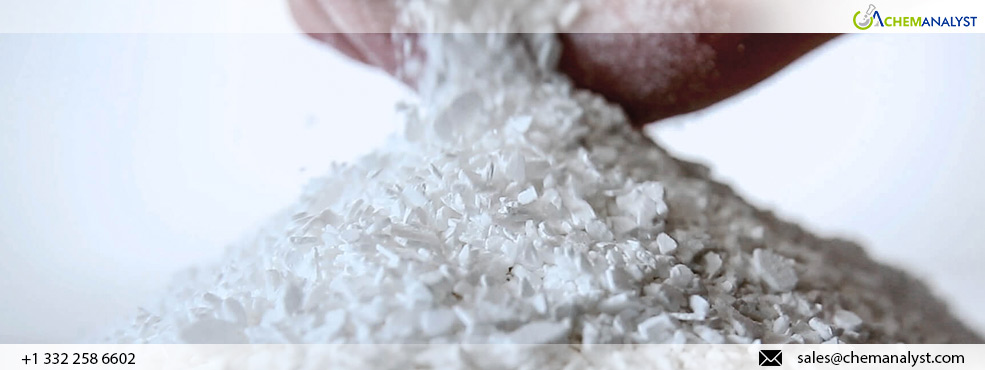Welcome To ChemAnalyst

Rotterdam (The Netherlands): The Calcium Chloride market in the Netherlands has experienced a decline, attributed to lower cost support from Calcium Chloride feedstock Calcium Carbonate. Market inventories remain ample, meeting downstream demand effectively. Meanwhile, Europe’s Calcium Chloride downstream construction industry faces a labour imbalance, with nearly half of the occupations in shortage. Nonetheless, the construction sector's demand is buoyed by increased foreign direct investment, fostering positive market sentiment.
In a recent move, the European Central Bank (ECB) has cut interest rates by 25 basis points, lowering the deposit rate to 3.75%. This aligns with similar rate reductions in Canada, Sweden, and Switzerland. The Eurozone Composite PMI for May 2024 marked the strongest increase in Eurozone economic activity since May 2023. This Calcium Chloride uptick in demand has boosted output and hiring, with business confidence improving for the seventh time in eight months. Although inflation rates for input costs and output charges have eased, they remain above pre-pandemic levels.
Calcium Chloride import prices from China have risen in June, contributing to higher overall prices in the European region. Additionally, the latest threats of violence escalation in the Red Sea amid the Israel-Hamas conflict are projected to reduce the shipping industry’s capacity. This disruption includes bottlenecks, vessel bunching, delays, and equipment shortages. An industry-wide capacity loss in the Far East to North Europe and the Mediterranean market is estimated for Q2. Efforts to enhance reliability include faster sailing and increased capacity, though war risk insurance Calcium Chloride premiums have surged.
Despite Calcium Chloride global supply chain disruptions, domestic production remains robust, meeting high demand from downstream industries, particularly construction. Calcium Chloride Feedstock Calcium Carbonate prices have remained stable due to steady Calcium Chloride production costs. However, the potential price hikes Calcium Chloride looms due to heightened risks from Houthi activity in the region amidst rising freight charges impacting the prices of the imports. Due to vessel capacity constraints, Ocean freight rates from Asia to Europe have been on the rise.
Efforts to reroute via southern Africa face significant challenges, and the risk zone has expanded with offshore attacks, forcing vessels to lengthen their journeys and incur additional delivery costs. The ongoing Red Sea crisis disrupts global supply chains, notably affecting Asian markets. The ECB’s interest rate cut has created positive market sentiment, likely reduced mortgage rates and further boosting the market. While the economic situation in the euro area and the EU shows positive signs, challenges persist with rising construction and renovation costs. These increases impact affordable and sustainable housing in the Netherlands, exacerbated by stringent sustainability requirements and growing housing needs.
We use cookies to deliver the best possible experience on our website. To learn more, visit our Privacy Policy. By continuing to use this site or by closing this box, you consent to our use of cookies. More info.
